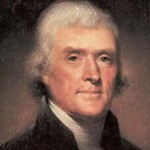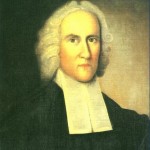Blog
American Religious Freedom Part I: The Past
June 30, 2010
This post is the first installment of a three-part series on the American tradition of religious freedom.
There are about as many opinions on religious freedom in America as there are Americans, and this blog certainly won’t please everyone. However, because faith is of such importance to so many Americans, why should it be taboo?
This post was largely inspired by two recent discoveries regarding the nature of religion in American politics and culture. The first of these is a lecture series on faith and American politics by Dr. Wayne Grudem, a seminary professor at Phoenix Seminary and one of the premier reformed theologians of today’s evangelical movement. These lectures, though I have only listened to a handful of them so far, have already brought much more depth and perspective to my thoughts and opinions on the tradition of religion in American public life, and I highly recommend them.
The second inspiration was a pithy quip by a tour guide at Thomas Jefferson’s Monticello, which I was privileged to visit this week. Our guide left no ambiguity in explaining that our third president was not a devout Christian, citing an 1820 letter to William Short in which Jefferson laments that the biblical accounts of Christ’s life are full of “so much ignorance, so much absurdity, so much untruth, charlatanism, and imposture, as to pronounce it impossible” that one person truly professed everything Jesus taught.
These words were written by the same man that had penned the Virginia Statute for Religious Freedom, the very document that Americans look to for protection of the separation between church and state, as well as the freedom to individually and privately practice any religion. It is an interesting and ironic conundrum that the document cited by so many Christians in defense of their right to freely worship was written by a man who once wrote, “I can never join [John] Calvin in addressing his god. He was indeed an Atheist, which I can never be; or rather his religion was Daemonism. If ever man worshipped a false god, he did.” It goes without saying that Jefferson was a man of contradictions. From his ownership of slaves to his opinions on religion, the “sage of Monticello” was indisputably brilliant, but certainly an enigma to his enthusiasts then and now.
With such uncertainty imputed to us by the very author of institutionalized American religious freedom, the question before us in this installment is: what role has religion played in the American culture, public life, and political tradition?
First, the concept of God-given natural rights is an essential component of our Declaration of Independence. In the first two sentences of the Declaration, the Founders (Jefferson being the principal author) make two references to God. First, the Declaration asserts that the United States have a right to be a free and independent country according to “the laws of nature and nature’s God.” Second, it argues, in those famous words we all know and love, “that all men are created equal, and are endowed by their Creator with certain unalienable rights, that among these are life, liberty, and the pursuit of happiness.”
The Declaration begins by laying out two key assumptions. First, governments exist according to laws laid out by God. Here we encounter a commonly debated question, that of the origin of natural law. As C.S. Lewis once wrote, the existence of “moral [or natural] law suggests the existence of a moral [or natural] lawgiver.” All of our Founding Fathers probably would have agreed with this statement, though some (notably Jefferson and Franklin) would not have concluded that this “natural lawgiver” was the Christian God. The second assumption is this: We the People have certain rights that cannot be taken away by any government because they were given to us by God. Without the influence of faith, where would our rights come from? Would they be granted to us by men, and thus subject to the whims of whatever human authority was in power at any given moment? What a chaotic, unstable society that would be! It is exactly because our political tradition is entrenched in a belief in God-given, irrevocable natural rights that we can live without fear of tyranny from our own government.
Moreover, as argued by Dr. Grudem, without the appreciation of faith’s influence on our political culture, our Declaration of Independence would be rendered invalid. The Declaration appeals directly to God for the moral legitimacy of the states’ secession from the British Empire. It asserts that governments have “a separate and equal station” among entities which is given to them by God, and that this “station” is one that requires them to respect and protect the rights of their people. If our government was not established on the premise that God had ordained its status as a protector of freedoms, we would look to humans for a guarantee against tyranny, and such faith always proves to be misplaced.
Briefly, let us examine the Virginia Statute for Religious Freedom. A pithy document, the Statute opens by establishing the premise that “Almighty God hath created the mind free,” and that free minds should be given liberty to choose the way in which they worship. Thus, the government of Virginia declared in 1786 that it would not make any law impeding or compelling the practice of religion by individuals because freedom of religion was a “natural [read: ‘God-given’] right.” This idea became an American policy three years later in the adoption of the First Amendment to the Constitution.
Finally, I conclude this portion of the blog with a quote from Jonathan Edwards, hailed by many as the greatest theologian ever produced by America (and for my fellow history nerds, the grandfather of Aaron Burr). Edwards, a man who surely considered his citizenship to be in Heaven (Philippians 3:20), nonetheless valued liberty here on Earth as much as any other American. Edwards wrote that “True liberty consists only in the power of doing what we ought to will, and in not being constrained to do what we ought not to will.” That’s some complicated grammar. In other words, Edwards knew that liberty, as guaranteed to us by our Creator, is ultimately most perfectly manifested in our having the freedom to worship as we please (doing “what we ought to will”) and in not being coerced to worship in a certain way (“being constrained to do what we ought not to will”).
Now, this first installment has focused largely on the Judeo-Christian roots of the American political tradition. This is because our Founding Fathers, the initiators of that tradition, were largely Christian. However, the more important point that I am trying to make is that understanding the Founders’ faith in a Creator is essential to understanding the origin and sanctity of our American rights, privileges, and traditions. Our rights as Americans are unalienable not because they are so valued; rather, they are valued because they are unalienable, and unalienable because they are given to us by God. Intertwined with our commonly accepted national philosophy is an element of the divine, and we should be proud to say so.
For those who disagree, I urge you to probe the depths of your reasoning to determine the fundamental origin of your rights. Ultimately, we are all after truth, and I hope you find that above all else. In the end, this is only my personal perspective, influenced by some great thinkers and theologians. I would be very interested to hear what others have to say.
The next installment of this blog will examine some more recent instances in which American freedom of religion has been crucial to the promotion of the “general welfare,” some times when it was used to wrongly justify tyranny, and a few episodes in which it was called into question.
For further reading, I refer you to the American Majority pamphlet “Why America is Great: Volume 1.” There you will find a comprehensive look at the ancient backgrounds of the ideas contained in our political culture. Also, I recommend the chapter “On Faith and the Founding” in Mark R. Levin’s Liberty and Tyranny.



WONDERFUL blog Eric!
Um wow. Another great piece Eric. I like that you pose many of your thoughts as questions, or points in a debate. This style really directs the reader towards introspection. Well done.
Excellent post-I will definitely be checking out that lecture series. You brought up some great points- contradiction though Jefferson was, one needs to look no further than the opening lines of the Declaration of Independence to see that our country was founded on faith in a God who cared enough to give us rights. No one can logically defend those rights without acknowledging the source. Unfortunately, people frequently want to appeal to God’s law as it applies to their rights, and not to their actions.
There is no doubt that Thomas Jefferson was a Christian.
“And can the liberties of a nation be thought secure when we have removed their only firm basis, a conviction in the minds of the people that these liberties are of the gift of God? That they are not to be violated but with His wrath? Indeed I tremble for my country when I reflect that God is just; that his justice cannot sleep forever . . . .” ~ Thomas Jefferson (Notes on the State of Virginia, Query XVIII, 1781).
Eric this is an awesome blog!
I disagree with the statement that Thomas Jefferson was a Christian, by Tim. That quote is great, but as James wrote, “You believe that there is one God. Good! Even the demons believe that–and shudder.” (James 2:19)
If Thomas Jefferson was or was not a “Christian”, he definitely had a healthy respect and fear of the Lord God of the Bible. What other deity could he have been referring to?
[…] is the third installment of a three-part series on American Religious Freedom. Click here for Part I, and here for Part […]